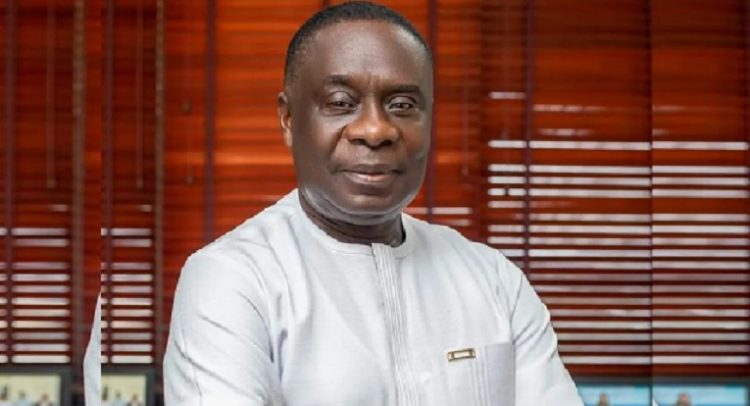Possible Outcomes of the Criminal Case
Under Ghanaian law, four distinct and plausible outcomes graciously reveal themselves — a nolle prosequi, charge withdrawal, acquittal, or conviction. Allow me to expand upon each in a courteous manner. It is important to note, however, that this discussion does not seek to prejudge the case’s outcome, but rather aims to offer an appropriate response to the initial question at hand.
First, the discerning Attorney General, without necessitating the consent of the court, may decisively exercise his prerogative to invoke a nolle prosequi, guided by the esteemed sections 54 and 55 of Criminal and Other Offences (Procedure) Act 1960, (Act 30). This consequential step signifies that the;
State no longer harbours any further interest in pursuing the case, thus effectively concluding the judicial proceedings. A seminal pronouncement in the authoritative case of Boateng VII v. Yeboah and Others masterfully clarifies that when the learned Attorney-General chooses not to proceed with a criminal prosecution, it decisively terminates the proceedings.
Such a consequential determination liberates the accused party from the burden of charges, affording them the utmost freedom to navigate life’s path without the encumbrance of attending court appearances.
This enlightened ruling resonates harmoniously with the illustrious case of Klopfer v. North Carolina, where the distinguished Chief Justice Warren fittingly articulated (p. 214): “Its effect is to put the defendant without day, that is, he is discharged and permitted to go whithersoever he will, without entering into a recognisance to appear at any other time.” However, it remains vital to acknowledge that the State retains the prerogative to initiate future legal action against Mr. Quayson on the same grounds. Such is the nature of a nolle prosequi.
Second, with the court’s gracious consent, the State may opt to diligently withdraw the charges brought against Mr. Quayson, as stipulated under section 59 of Act 30.
In such an event, the possibility of reintroducing similar charges would hinge upon the stage at which the charges are withdrawn. If the withdrawal occurs before the conclusion of the prosecution’s case, the accused must be discharged from the alleged offence(s), and their discharge shall not serve as a barrier to subsequent legal proceedings on the same grounds. However, if the withdrawal takes place after the conclusion of the prosecution’s case, the accused must be acquitted in regard to the alleged offence(s).
Third, in the event that Mr. Quayson is found not guilty and subsequently acquitted and discharged, he shall be fully entitled to vie for the high office of a Member of Parliament.
Under Ghanaian law, the principle of “innocent until proven guilty” is paramount. It ensures that until Mr. Quayson is proven guilty and convicted, he maintains the right to run for Parliament. This principle safeguards the integrity of his candidacy until a verdict is reached with unwavering certainty. This enduring principle applies to the three potential outcomes previously discussed, ensuring the preservation of justice’s noble essence.
Ineligibility Upon Conviction
Lastly, in the unfortunate scenario of Mr. Quayson’s conviction, he shall, absent a successful appeal, be rendered ineligible to seek a parliamentary seat, strictly in accordance with the provisions artfully outlined in Article 94(2)(c) of our revered Constitution.
This pivotal article explicitly states that a person shall not be deemed qualified to be a Member of Parliament if they have been convicted of a high crime under this Constitution, high treason, treason, an offence involving the security of the State, fraud, dishonesty, or moral turpitude.
Similarly, disqualification ensues if one has been convicted of any offence punishable by death or a sentence of no less than ten years.
Additionally, disqualification applies if one has been convicted of an offence relating to, or connected with an election, as defined by a law in force in Ghana at any given time.
Conclusion
In evaluating James Gyakye Quayson’s eligibility for the upcoming by-election, I have considered legal precedents, party support, and ongoing prosecutions.
The revered Ex parte Dr. Zanetor case provides a foundation, but Mr. Quayson’s failure to relinquish his Canadian citizenship before the 2020 election poses challenges.
The NDC stands firmly behind him, believing in his potential for victory. However, the inherent risks and legal complexities of the ongoing prosecution must be weighed.
The outcomes, whether through a nolle prosequi, charge withdrawal, acquittal, or conviction, carry significant implications. It is the NDC’s responsibility to carefully deliberate, ensuring a fair and transparent decision that serves the interests of Assin North’s constituents and upholds democratic principles. Justice, respect for legal processes, and a measured approach are essential.
As custodians of their party’s values, the NDC must navigate this intricate landscape, making a well-informed choice that honours democratic institutions and secures the integrity of the electoral process.
By Richard Dela Sky

